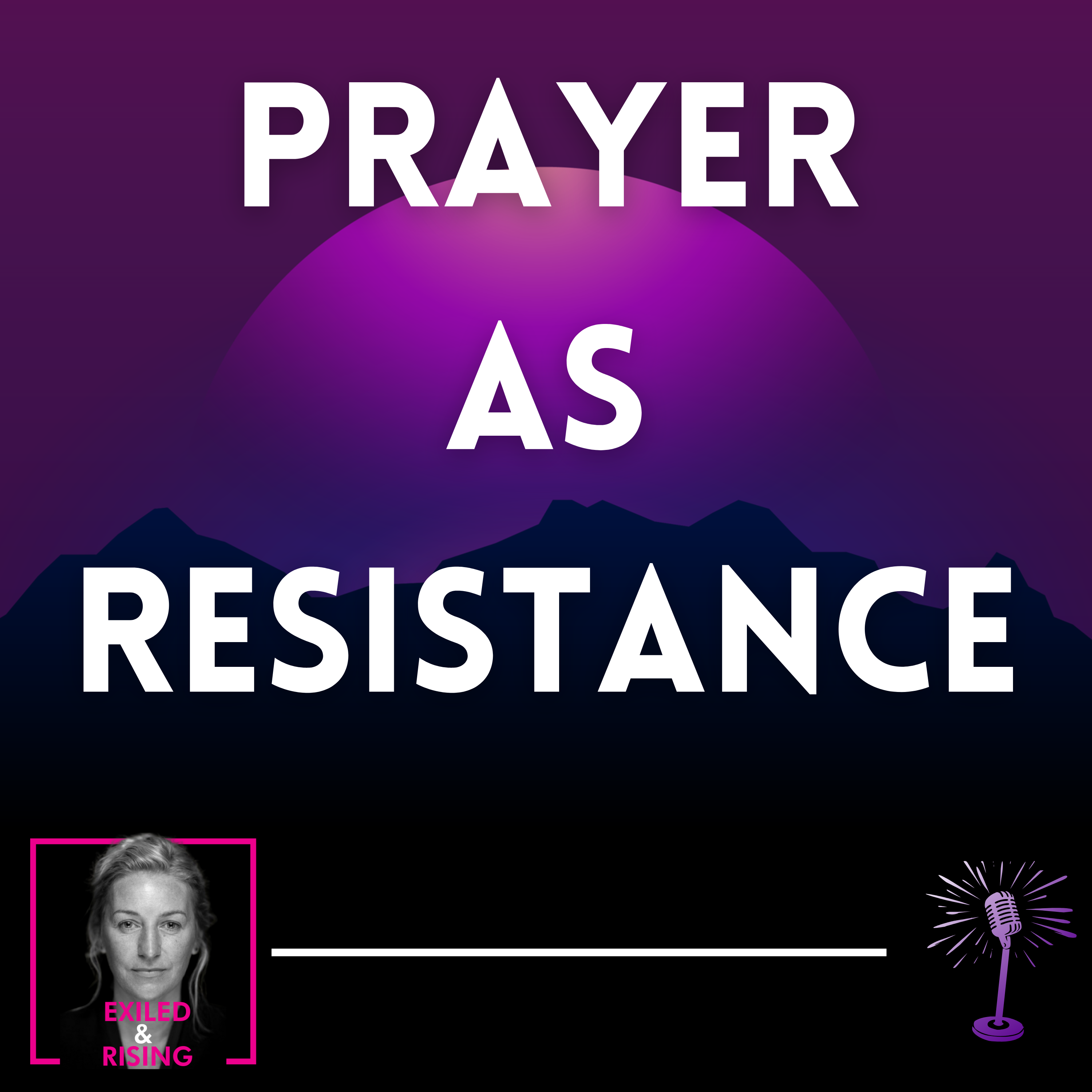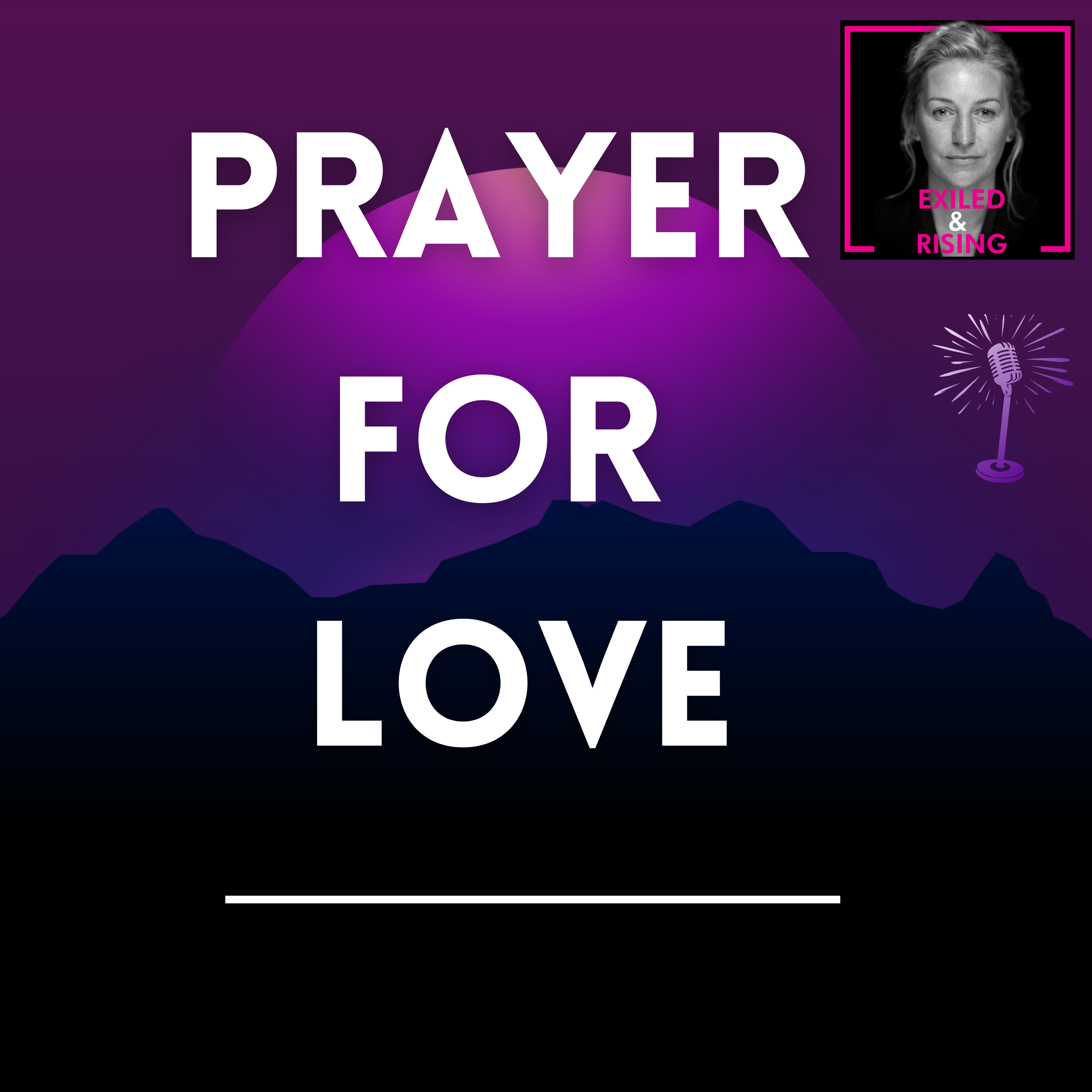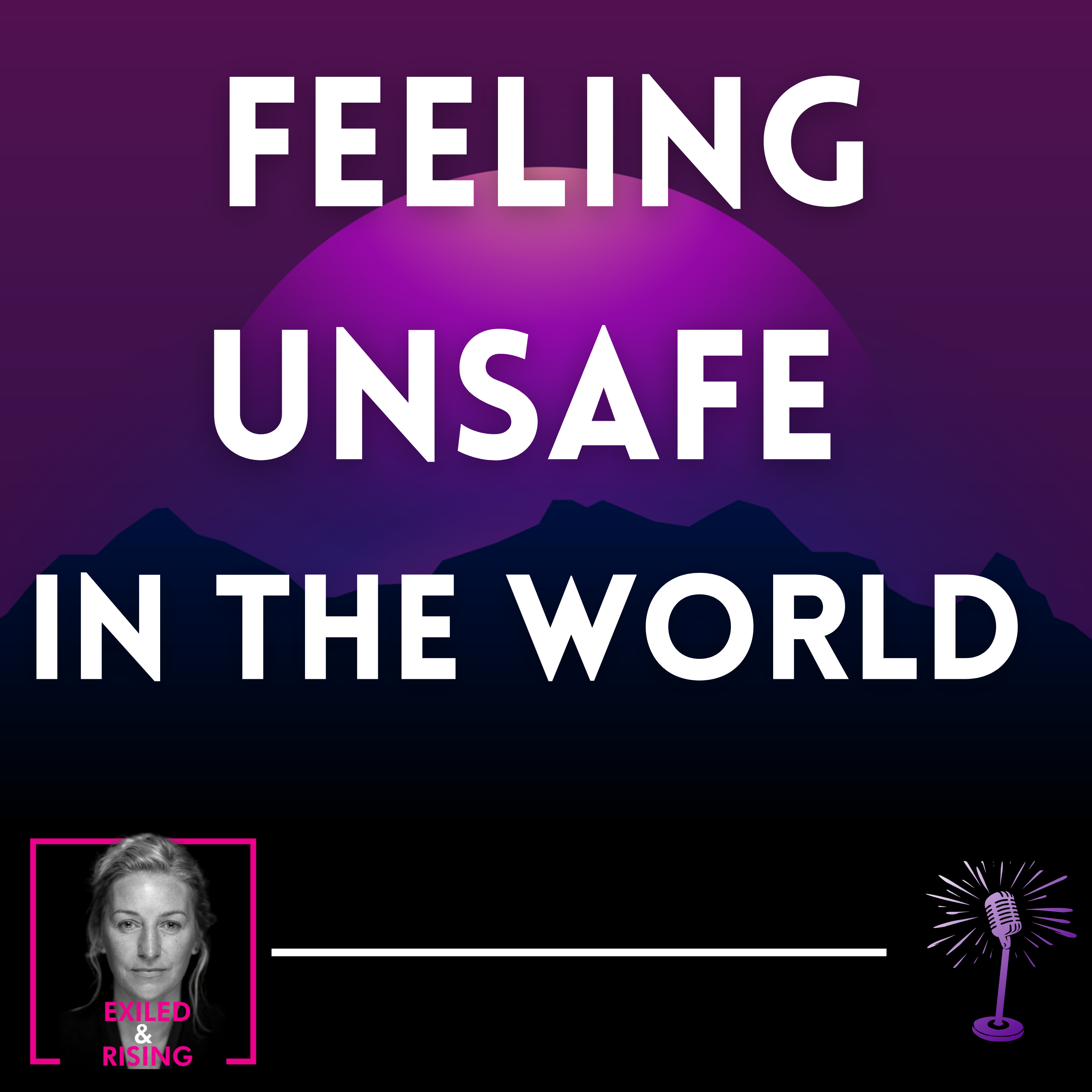Show Notes
This Is Not Just a Prayer. This Is a Protest.
This episode is a somatic and spiritual response to systemic exclusion. In a time when book bans, anti-immigration laws, transphobia, genocide, censhorship and the rise of authoritarianism are threatening the safety and dignity of marginalized people ( and everyone with voice), Ana Mael offers a counterspell of embodied belonging.
"For all exiled and undocumented citizens who live in fear and uncertainty like I do, may we find safety, justice, and the recognition of our inherent dignity and human rights."
This episode is your space to pause and reclaim your place—without performance, forgiveness, or silence.
❤️Support the mission & keep the podcast alive and Ad-Free : Donate
Ana Mael’s Prayer for Outsiders is powerful because it is not just a prayer—it is a form of embodied political resistance, a somatic intervention, and a spiritual homecoming for those who have been historically marginalized, censored, and erased.
Here’s why it hits so deeply:
1. It Names What Is Often Left Unspoken
Ana doesn’t generalize suffering—she names it: exile, racism, statelessness, queerphobia, mental health stigma, immigration status, poverty, appearance, and accent. These are the exact reasons people are cut off, and in naming them, she performs a radical act of witnessing.
“For all exiled and undocumented citizens who live in fear and uncertainty like I do…”
This specific, intersectional witnessing creates an immediate nervous system drop in for the listener: “She’s talking about me. My story is here.”
2. It Offers Spiritual Language Without Spiritual Bypassing
Many trauma survivors have been harmed by religion or silenced by spiritual platitudes like “forgive and move on.” Ana refuses that. Her prayer reclaims the sacred without demanding silence, forgiveness, or peace.
“You do not owe anyone forgiveness if it doesn’t feel right for you.”
This is soul-level validation for survivors who have long been forced to carry the weight of healing without justice.
3. It Uses Voice and Rhythm as Somatic Co-Regulation
The cadence, pace, and pauses in the prayer are intentional. They create a safe rhythm for listeners to slow down their breath, drop into their body, and feel less alone.
In a time of crisis, regulation is revolutionary. The prayer becomes a nervous system intervention—especially for those experiencing:
-
Anxiety and hypervigilance
-
Emotional overwhelm
-
Dissociation or shutdown
-
Chronic loneliness and grief
4. It Is Both Personal and Collective
By saying “like I often feel” or “as I sometimes am”, Ana merges the individual and the collective. This is trauma-informed solidarity—not as a performance, but as co-regulated presence.
“You belong to all of us with so many differences… even when you feel alone.”
This line undoes internalized alienation in real time.
5. It Reclaims Prayer as a Form of Advocacy
Prayer here is not a performance of virtue—it is a call to action, an energetic stance against erasure, and a means to reclaim power and dignity.
“May I have the courage to speak out against injustice and prejudice—using my voice to advocate for myself and others.”
That is not soft spirituality. That is justice woven through breath.
This prayer is powerful because it does what few dare to do—it integrates somatic healing, social justice, spiritual reclamation, and political resistance into one intimate, embodied experience. It gives listeners—especially those cut off or silenced—not just comfort, but clarity. And in that clarity, YOU can rise.
Core Takeaways: Distilled Lessons & Truths
1. Prayer Can Be Political, Not Passive
“May I have the courage to speak out against injustice and prejudice—using my voice to advocate for myself and others.”
Ana reframes prayer as a platform for advocacy. It is not submission—it is witnessing, naming, and reclaiming.
2. You Don’t Have to Forgive Systems That Harmed You
“You do not owe anyone forgiveness if it doesn’t feel right for you.”
This builds on Ana’s earlier episode on the dangers of spiritual bypassing, affirming the right to grieve and resist without the pressure of premature peace.
3. You Are Not the Minority—Erasure Is Just Loud
“More than 70% of people on this planet are outsiders.”
Ana reframes isolation as a shared condition created by unjust systems—not a personal flaw.
4. Justice Is Somatic
Prayer becomes an embodied tool to:
-
Reclaim breath
-
Anchor into belonging
-
Call in spiritual and ancestral support
-
Build nervous system safety around advocacy
“May I be surrounded by those who see me for who I truly am and offer unconditional love and support.”
❤️ Support the mission & keep the podcast alive and Ad-Free, Junk-Content-Free Experience – No distractions, no unnecessary content—just focused healing insights.
From Trauma to Resilience. From Wounds to Resistance!
Join Premium Membership – What You Get in the Private Community
Exclusive healing content, deeper insights, and practical recovery tools.
✔ Keynotes & Detailed Summaries – Concise, research-backed insights extracted from each episode to help you apply lessons directly to your healing journey.
✔ Therapy Takeaways – Actionable insights designed for therapy, journaling, and self-work—cutting straight to the core of trauma recovery.
Meet Your Host: Ana Mael
Ana Mael is a genocide and war survivor, somatic therapist, and founder of the Somatic Trauma Recovery Center. She has dedicated her work to helping survivors reclaim their identity, dignity, and self-trust.
She is the bestselling author of The Trauma We Don’t Talk About—a #1 book in over 10 categories, including Mental Health, Personal Testimonies, and Memoirs.
Ana Mael’s insights are unflinching, trauma-informed, and radically honest. Her podcast Exiled and Rising merges the depth of somatic trauma healing with fierce social justice—centered around the lived realities of marginalized, displaced, and silenced bodies. With a voice that is both compassionate and defiant, Ana dismantles spiritual bypassing, confronts systemic harm, and offers a grounded, body-based path to healing rooted in dignity, truth, and personal sovereignty.
Ana lives in Toronto, Canada, where she works directly with clients and educates mental health professionals and counsellors on displacement, exile, and war trauma recovery. She leads training programs, provides trauma-informed therapy, and conducts research to bridge the gap between somatic therapy and global crisis trauma care.



